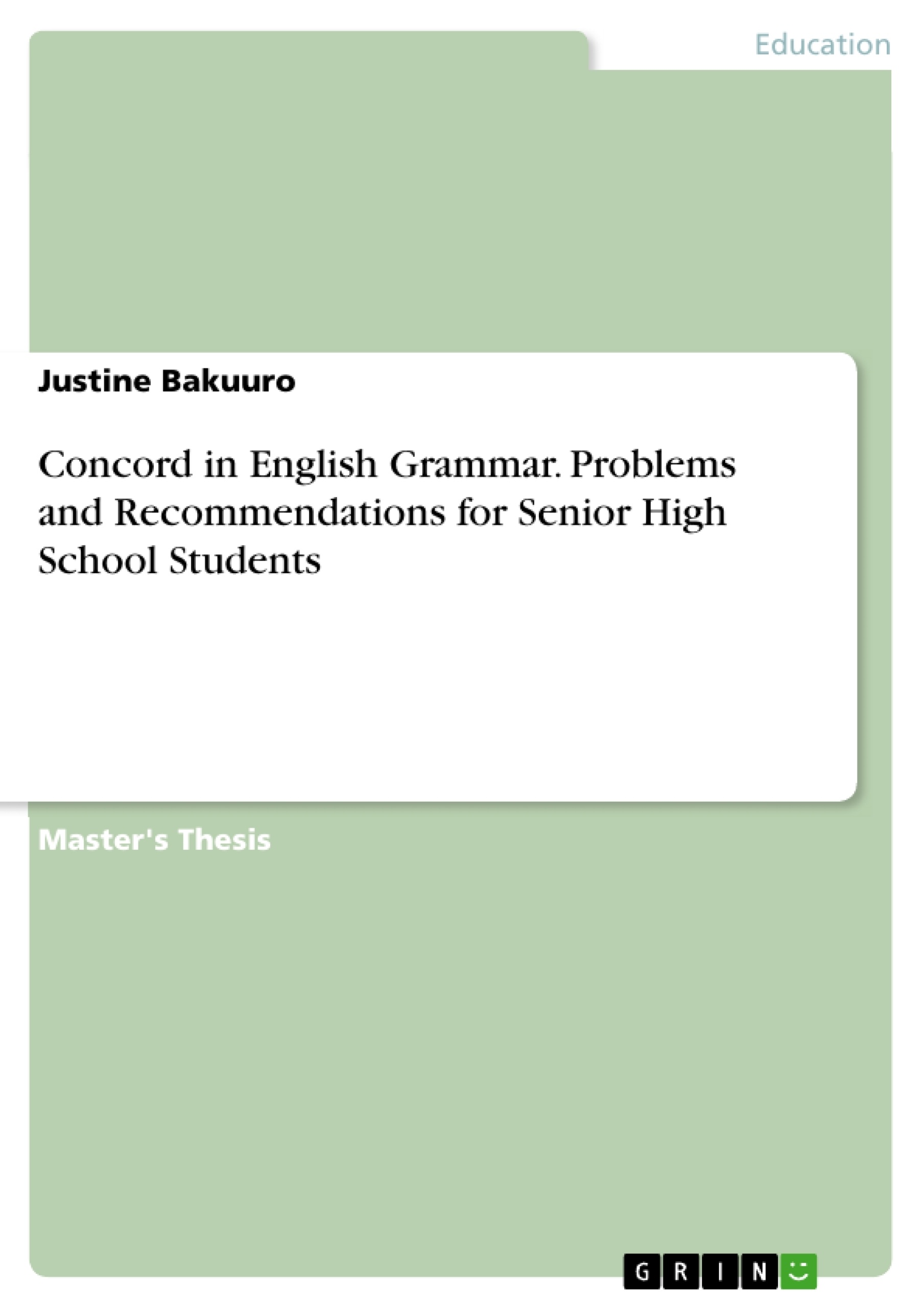The major problem investigated in this study is the difficulties senior high school students encounter in the use of concord in English grammar. The purpose of the study was to identify these concord learning challenges, find out why those challenges exist and find appropriate ways to help the students. The instruments used to collect data were intervention tests. The research design included pre-intervention, intervention and post-intervention.
The study discovered that most of the students could not apply the rules of concord correctly. They had very serious problems with subject-verb concord. Most students applied concord rules correctly to a very large extent after they were taken through the rules guiding concord in the intervention procedure. In conclusion, this research has proved that an intervention procedure is very important in assisting students to overcome their concord learning challenges.
Table of Contents
- Acknowledgements
- Dedication
- Table of Contents
- Appendices
- List of Tables
- List of figures
- Abstract
- CHAPTER ONE
- 1.0 Introduction
- 1.1 Background to the study
- 1.2 Statement of the problem
- 1.3 Purpose of the study
- 1.4 Research objectives
- 1.5 Research questions
- 1.6 Limitations of the study
- 1.7 Delimitations of the study
- 1.8 Significance of the study
- 1.9 Organization of the study
- 1.10 Theoretical Framework
- CHAPTER TWO: LITERATURE REVIEW
- 2.0 Introduction
- 2.1 Attitudes towards Grammar instruction
- 2.2 Student expectations on grammar instruction
- 2.3 The use of grammatical terminology
- 2.4 Concord
- 2.5 Aspects of concord and their underlying principles
- 2.6 Difficulties of studying concord
- 2.7 English grammatical concord in perspective
- 2.8 Summary
Objectives and Key Themes
This dissertation examines the concord in English among students of Islamic Senior High, WA and WA Senior High School. The study investigates the challenges students face in understanding and applying concord rules, and explores the impact of these challenges on their overall English proficiency. The study aims to contribute to the body of knowledge on English language teaching and learning in Ghana, specifically by providing insights into the grammatical challenges faced by high school students. The dissertation will be a valuable resource for educators, curriculum developers, and policymakers in Ghana.
- Concord in English language learning
- Challenges faced by students in understanding and applying concord rules
- Impact of concord challenges on English proficiency
- Effective strategies for teaching concord
- Recommendations for improving the teaching and learning of English in Ghana
Chapter Summaries
Chapter One provides the introduction to the study. It discusses the background of the study, the statement of the problem, the purpose of the study, the research questions, the limitations and delimitations of the study, the significance of the study, the organization of the study, and the theoretical framework. Chapter Two, the literature review, explores existing research on attitudes towards grammar instruction, student expectations of grammar instruction, the use of grammatical terminology, concord, and the difficulties of studying concord. This chapter also provides a perspective on English grammatical concord.
Keywords
The key terms and focus topics in this study include concord, English language teaching and learning, grammatical challenges, student proficiency, educational policy, and curriculum development.
- Arbeit zitieren
- Justine Bakuuro (Autor:in), 2015, Concord in English Grammar. Problems and Recommendations for Senior High School Students, München, GRIN Verlag, https://www.grin.com/document/931496



